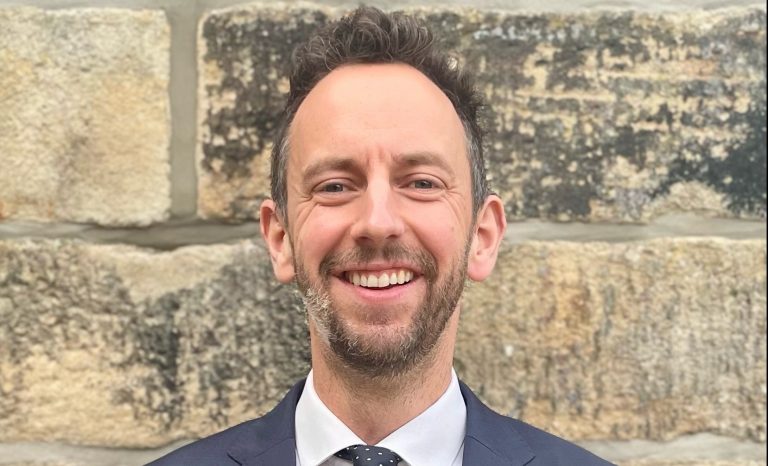Ørsted has signed a key installation contract with Seaway7 to deliver transport and installation of inter-array cables for its Hornsea 3 Offshore wind farm.
Sustainability in focus at this year’s Climate Action Festival
Now in its fourth year, the Climate Action Festival from the University of Lincoln, UK, is back for 2024 this November and it’s bigger and better than ever!
The Festival is held over six days and is taking place this year between 18 and 23 November, finishing with a citywide community litter pick on the Saturday. The Festival is dedicated to raising climate awareness, and aims to highlight how everyone can take positive climate action in their communities and wider afield.
This year’s themes are Climate Education, Nature Positive and Community, and will include events that celebrate nature, sustainable fashion, art and more.
The Festival has also been recognised by the prestigious UK and Ireland Green Gown Awards, and will be on the shortlist at this year’s award ceremony.
Visitors to this year’s Festival can take part in Tree Walks, learn how to survey wildlife, attend the Wild Lincolnshire Panel and much more. There will be plenty of opportunities to get creative by learning how to make nature-friendly art or by visiting the art exhibition. All of this as well as an insight into some of the positive sustainability research taking place at the University of Lincoln.
Libby John, Professor and Dean of Sustainability at the University of Lincoln said:
“Our Climate Action Festival has become an autumnal highlight celebrating all things sustainability!
“From fashion to science to wildlife to art and craft there is a varied and exciting timetable of events where staff, students and members of our wider community can contribute and feel positive about their sustainability contribution.
“So please take a look at our timetable and sign up for something new!”
This year’s Climate Action Festival will be taking place at venues across Lincoln, and will involve more partner organisations than ever before.
The Nature Positive Exhibition will be taking place at Project Space + at the Peter De Wint Building on Brayford Campus. A Community Clothes Swap will be held at the Lincoln Arts Centre every day of the Festival.
The Budget: trick or treat
James Pinchbeck, Marketing Partner, Streets Chartered Accountants
Yesterday Rachel Reeves, our first female Chancellor, delivered a Labour government’s first Budget in 14 years. The day before Halloween it certainly seemed to come with its own tricks and treats, but perhaps not the ones you might expect.
For a start, it would seem an incoming government chose to blame the previous one for the mess and the financial situation they have inherited. The first 20 minutes of her speech focused on, from her perspective, their predecessors’ failings in terms of delivering on promises and ‘tricks’ to disguise the £22bn black hole.
A Budget with a £40bn price tag
Against this background she then set out how she and the government were going to ‘rebuild Britain once again’ and restore economic stability. Who might have thought that would come with a £40bn price tag or in this case tax rises.
Whilst much of what is said to be raised following the Budget will seek to fill the ‘black hole’, some £20bn should also form part of proposed or rather committed investment in public spending including health, housing, infrastructure, defence and education. All of which, perhaps with the exception of defence spending, should help to improve our lives and economic prosperity.
The million-dollar question is who is going to pay for all this?
Sticking to their electoral pledge it is not ‘working people’ through changes to income tax, VAT nor employee’s national insurance.
No, the biggest contributor looks likely to be businesses, with the proposed increase in employers’ national insurance contributions by 1.2% to 15% and with the earnings threshold reduced from £9,100 to £5,000 from next April, set to raise £25bn a year by the end of this parliament. The Employment Allowance, which allows those with NICs bills of £100,000 or less to deduct £5,000 from their employer NIC bill, will be increased to £10,000.
More modest in the tax it will generate, with only £2.5bn forecast to be raised, is the announced increases in Capital Gains Tax (CGT), with the lower rate rising from 10% to 18% and the higher rate from 20% to 24%. It was also announced that the rate of CGT on assets qualifying for Business Asset Disposal Relief and Investors’ Relief will rise gradually to 14% from 6th April 2025 and to 18% from 6th April 2026.
Whilst perhaps changes to inheritance tax were not as wide ranging as we thought they might be, changes to Agricultural Property Relief and Business Property will be more impacting. From April 2026, reforms include the first £1million of combined eligible agricultural and business assets for 100% relief, with excess assets at 50%. Also, from next April the government will introduce a new residence-based system for IHT, ending the use of offshore trusts to shelter assets from IHT.
Other tax rises include the increase in Stamp Duty Land Tax for the purchases of additional dwellings, changes to company car tax and the charging of VAT on public school fees. These are along with other measures to address tax avoidance, late payment of tax due and the abolishment of the non-domicile regime.
What were the treats?
Perhaps the treats, for some, may be the announcements were not as wide ranging or hard hitting as might have been expected. Certainly, the continued freeze on fuel duty will be welcome, for lovers of beer so too might be the penny off a pint.
For those serving a pint and those in retail, hospitality and leisure it must be good news that for 2025/26 eligible properties will receive 40% relief on their business rates liability, with the small business multiplier to be frozen for 2025/26.
For those on the ‘national living wage’ so too will be the increase in rate by 6.7% to £12.21 an hour.
What challenges does it present?
This Budget raises challenges and potential issues for those looking at inter-generational wealth planning and the handing of assets from one generation to the next, both from a business and personal perspective, but especially for farmers.
Also, is the consideration around the timing of the sale and disposal of assets, businesses and property that is subject to CGT and Business Assets Relief, formally Entrepreneurs Relief.
The other key area is around absorbing or managing increased staffing costs through the increase in national insurance and the national living wage. It certainly seems more and more challenging to pass on increased costs without affecting revenue, therefore profitability could be at risk.
With this Budget setting the scene or tax landscape for the term of this government and with the announcement that we will only have one Budget a year, we should all be better placed to consider effective tax and financial advice to manage our affairs and the challenges and opportunities we face. Often uncertainty is used to defer or put off planning, perhaps for once this Budget provides, whether we like it or not, the certainty we need.
Andrew takes over as ABP’s Regional Director for the Humber ports
Andrew Dawes has taken over as ABP’s Regional Director for the Humber at what’s described as an exciting period as the four Humber ports evolve to sustain green energy needs.
He said: “This is an incredible time to be joining ABP as the next five-year business strategy is launched. There are some great projects and growth opportunities in the pipeline as the ports play a key role in delivering our twin missions of Keeping Britain Trading and Enabling the Energy Transition here in the UK.
“Stepping into this role I‘ve been genuinely impressed by the talent of the Humber team and achievements so far. I am very much looking forward to working with them, our customers and wider stakeholders as we embark on this momentous journey.”
ABP CEO Henrik L Pedersen added: “Andrew has an impressive career history and brings a wealth of experience from across the maritime industry which will be hugely valuable.
“He has a stellar record of operational command and of leading organisations through change. I am delighted he has joined us as we embark on a new five-year strategy.”
Andrew began work in 1995 at what was the Southampton Container Terminal (now DP World) and has progressed his career to become a seasoned maritime executive, amassing almost 30 years of experience from the global ports and terminals industry with companies such as DP World, APM Terminals and International Container Terminal Services Inc. (ICTSI).
Alongside his strong leadership credentials, he brings with him a wealth of experience in safety, operations and commercial and experience both as Managing Director with profit and loss responsibility of terminals, as well as regional portfolio responsibility.
Andrew will be part of the Executive team of the UK’s major ports group, and will report directly to Henrik L. Pedersen, ABP’s CEO.
Andrew was appointed after Simon Bird stepped down at the end of October as Regional Director of the Humber ports after nine years in the role.
Trent Refractories appoints new commercial manager
John Croot has joined Scunthorpe0based Trent Refractories as Commercial Director.
He has a deep background in the refractories industry, having earned a BSc in Applied Management Science from De Montfort University, Leicester, where he also completed an HND in Mathematical Studies.
He has worked at Hepworth Refractories as a Quality Control Laboratory Assistant, later progressing to Project Estimator and Junior Project Manager roles. During his time there, he modernised quality assurance systems and managed significant projects, including furnace and stove relines.
In 2005 he went to Vesuvius as a Project Manager, overseeing OEM Ironmaking accounts and earning a European Sales Award for his achievements. His career at Vesuvius continued to grow, with promotions to Projects and Proposals Manager in 2009 and Project Services Manager in 2013, where he led large teams and handled substantial budgets. By 2015, as Project Services Director, his responsibilities extended across Europe and the Middle East, managing a budget of £35 to £40 million.
In 2019, John joined Primetals Technologies as a Refractory Expert, focusing on product rationalisation, supplier development, and technical support.
Doncaster house builder wins Project of the Year title
Doncaster-based house builder Keepmoat has won the ‘Project of the Year’ title for developments over £25m for its development at Soothill in Batley.
The Orchards development won the award at he National Building and Construction Awards for its commitment to regeneration, sustainability through the use of modern methods of construction and a multi-tenure approach.
The £52m housing project will see Keepmoat transform 30 acres of disused land into a development of 319 mixed tenure homes. Phase one of the site has seen 85 homes delivered using modern methods of construction, with the entirety of the site planned to be built using timber frame.
MMC is a process that focuses on off-site construction techniques, such as volume production through efficient factory prefabrication, as an alternative to traditional labour-intensive on-site construction.
Apprentice bricklayer Callum McNaughton, 19, who is employed by the Yorkshire West division of the housebuilder, was also shortlisted for the ‘Apprentice of the Year’ award.
Callum, 19, from Batley, began his bricklaying apprenticeship in September 2023 at the National House Building Council’s Training Hub in Hull. While he trains at the Hub, Callum also gains valuable, hands-on bricklaying experience at Keepmoat’s The Orchards development also in Batley – a position that was coordinated for him as part of his apprenticeship.
Chris Clingo, Regional MD at Keepmoat Yorkshire West, said: “I’m incredibly proud of the Yorkshire West team and our fantastic award win last night.
“It’s inspiring to see our efforts in regeneration, placemaking and building homes of the future at The Orchards development in Batley recognised by such a prestigious awards programme.
“Our commitment to continuing to deliver future-proof homes at the site, in collaboration with our partners, is ongoing with work on phase two of the development already well underway, as we look to further improve the local area and develop thriving communities. We’re thrilled to be continuing delivery under our strategic partnership model to build quality, sustainable homes for the latest phase in this regeneration project.”
City council names new Chief Exec to take over next year
Ed Whiting is to be Leeds City Council’s new permanent chief executive, being confirmed in the post on November 13th, and taking over early next year.
He is currently Director of Cities and Local Growth in the Department for Business and Trade and Ministry for Housing, Communities and Local Government, based in Leeds, and is leading place-based economic growth partnerships with UK Mayors and other leaders.
He has also held senior civil service roles in HM Treasury and 10 Downing Street. Previously he was Director of Strategy for Wellcome, where he led the development of their new organisational strategy and global partnerships, and was the executive sponsor for equality, diversity and inclusion.
He said: “I’m over the moon to be recommended to full council as our next chief executive. I love Leeds and am excited to be part of the next chapter of our city’s story. Through the recruitment process I’ve enjoyed getting to know Team Leeds better, and have been impressed with the dedication across our council team and partners, and the strong shared commitment to do their best for all Leeds residents.
“I’m looking forward to joining the team as we work together on both the challenges and opportunities that lie ahead for our brilliant city.”
Ed is expected to join the council early next year, with Mariana Pexton remaining in post as interim chief executive until then. He is very familiar with Leeds having grown up in the city. He now lives in West Yorkshire with his partner David, and they are foster carers to a young baby.
Leeds makes money available to support world-class thinking by city’s businesses
Leeds City Council has put up £175,000 for grants intended to provide advice, guidance, mentoring or training to encourage world-class innovative thinking and activity by the city’s businesses.
It is hoped that, through the Innovation@Leeds programme, grants of between £15,000 and £25,000 will mean firms can deliver cutting-edge products, processes and services to make Leeds a healthier, greener and more inclusive place to live.
The exact nature of the projects will depend on the proposals submitted by grant applicants, who are being asked to show how their idea can achieve at least one of three main aims. These are:
- Boosting the capabilities of innovative businesses already operating in fields such as artificial intelligence or financial, health and legal technology;
- Supporting people from diverse backgrounds who want to launch their own innovation-led businesses;
- Raising the profile of Leeds as a centre for innovation and showcasing its strengths to outside investors.
Housebuilder submits plans to deliver 170-home development in Lincolnshire
Housebuilder Honey has submitted plans and exchanged contracts on a 12.3-acre site in Witham St Hughs, Lincolnshire, to deliver a £45m, 170-home development.
The proposed site, which will be called Nova, is located off Warren Lane and is a short drive from the A46.
Subject to planning, the development will comprise a mix of two-, three- and four-bedroom homes and feature 17 of Honey’s different house types. Of the 170 homes, 28 have been allocated as affordable housing.
The proposed site in Witham St Hughs will form part of the Central Lincolnshire Local Plan which looks to ensure that all new homes are well-designed and in appropriate locations to benefit the needs of the community.
If given the go ahead by North Kesteven District Council, work at the development is anticipated to start in early 2025 with the first residents expected to move in by the end of next year.
Since being launched in October 2022, Honey has secured 19 sites across Yorkshire and the East Midlands that will deliver 2,349 homes and a combined gross development value of £665m.
The housebuilder is backed by private equity firm Alchemy Partners and its Alchemy Special Opportunities Fund IV which has £937m of fully committed capital.
Honey Chief Executive Officer, Mark Mitchell, said: “Our thorough market research identified Witham St Hughs as a popular residential location for us to build in and expand our development footprint in the East Midlands.
“We are seeing strong demand for high-specification homes from prospective buyers living in and looking to move to the local area. Our thoughtfully designed homes, which combine style, substance and sustainability will satisfy this.
“Now that we have exchanged contracts and submitted plans for our Nova development, we look forward to North Kesteven District Council considering our proposal.”
Demolition works mark start of Rotherham Markets transformation
Work has started on the demolition of the former Drummond Street shops – also known as the Guardian Centre buildings – at the Rotherham Markets site this week.
The demolition paves the way for the development’s brand-new town centre library.
This key milestone in the project marks the first visual change at the historic markets site for members of the public, showcasing tangible progress in the creation of a more inviting, inclusive and accessible area of the town centre.
The demolition of the Guardian Centre buildings will last approximately six weeks.
Once cleared, the site will become the location for the new modern, central library, which will tie into the vibrant refurbishment of the indoor and outdoor-covered markets, and extensive public realm improvements.
The new library building has been designed with the town’s community needs in mind. It will feature a dedicated children’s area, café, community meeting spaces, working spaces, a business development facility, IT centre and more.
Lead contractor for the Rotherham Markets redevelopment Henry Boot Construction is keen to support the local supply chain wherever possible and has appointed Rotherham-based Demex as their demolition subcontractor.
Rotherham Council’s Cabinet Member for Transport, Jobs and the Local Economy Cllr Robert Taylor said: “We are committing to investing in Rotherham’s future, and the removal of the older buildings brings us one step closer to a fantastic market development which will contain dynamic spaces for all to enjoy, whilst providing exciting opportunities for local businesses.
“In the meantime, Rotherham Indoor Market remains open for business as usual with a range of outdoor markets now taking place in the town centre, so I encourage everyone to continue to support our local traders until they are in their new facilities.”
Henry Boot Construction will be managing the demolition process, reducing dust and noise pollution as much as possible throughout.
They will be using a water mist suppression technique to minimise any dust, as well as installing noise monitors around the site to ensure the team can work safely, whilst also reducing any inconvenience to town centre visitors and local businesses.
Once the demolition of the Drummond Street shops is complete in December, the distinctive 3,500sqm outdoor market canopy – including fabric cover, support wires, and structural frame – will be removed in stages.
Tony Shaw, MD of Henry Boot Construction, said: “This is a significant moment in the Rotherham Markets redevelopment project, as it marks a key period of visual change for the town centre. This phase is making way for the future vision of the town centre – one that will help increase footfall and drive further growth and investment in the town.
“We look forward to continuing our work with Rotherham Council to breathe new life into the town centre.”
Work on the entire Rotherham Markets development is expected to complete in 2027.












